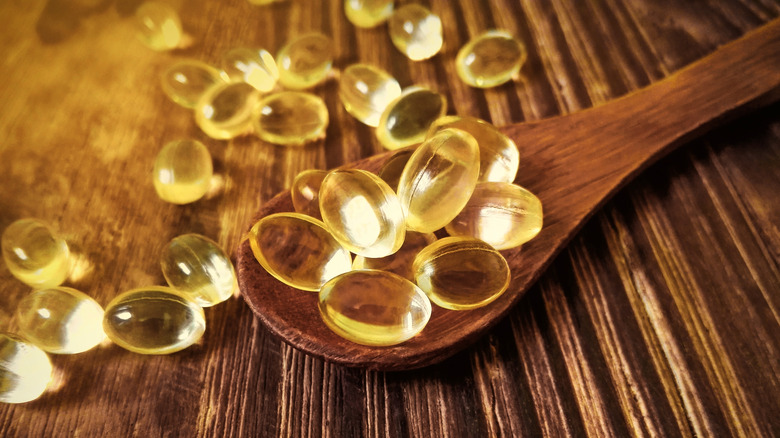The Vitamin You Need If You Have Trouble Concentrating
From social media hopping to texting while driving, we can all admit that our lives have become more distracted. Every corner of our minds seems to be occupied with a piece of information that can hinder us from focusing on the task at hand. However, mental distractions and information overload may not be the only reasons you struggle to concentrate. A vitamin deficiency may be to blame when you have trouble completing a work assignment or home project.
With so many vitamins to choose from, which one do you need to help improve your concentration? According to Healthline, a vitamin D deficiency can lead to brain fog, poor concentration, and memory issues. On the other hand, studies suggest that vitamin D has a significant impact on cognitive health, which the National Institute on Aging defines as the ability to think clearly, learn, and recall information. Scientists at The University of Manchester found that men who had higher vitamin D levels consistently performed better on measures of attention and processed information more quickly.
How to get the vitamin D you need
According to the National Institutes of Health, vitamin D is a fat-soluble vitamin that supports normal functions and processes within the body. Unfortunately, deficiency of this vitamin is very common. Almost 42% of U.S. adults need to be getting more vitamin D and roughly one billion people worldwide also have low levels. However, there are ways to boost your vitamin D intake, and thus, your concentration as well.
Vitamin D is present in foods such as salmon, eggs, mushrooms, fortified cereals, and dairy products (via National Institutes of Health). Additionally, humans can obtain and synthesize vitamin D from sun exposure, though sun exposure is not recommended for everyone or for long periods. As such, factors like skin color, where you live, your weight, your age, and even the amount of sunscreen you slather on can impact your body's ability to make vitamin D, according to Mayo Clinic.
Experts at Harvard Medical School suggest aiming for 600 to 800 international units (IU) daily (via Harvard Health Publishing). However, if you're very deficient, you may need a higher dosage. The best way to determine your current levels and identify any deficiency is to get a lab test and discuss your results with your doctor.


